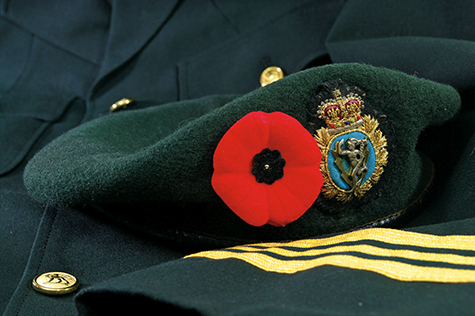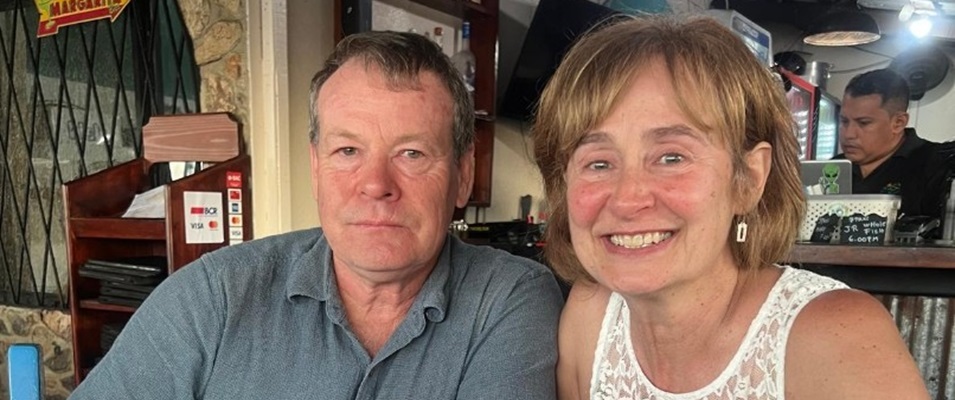
2015 marks the 70th anniversary of the end of World War II, with Germany’s surrender on May 7, 1945. But here in Canada, to the generations since that have little connection to those historic events, it can be hard to appreciate the magnitude of the war years—and specifically, Canada’s role in them.
On the other side of the Atlantic, younger generations don’t all suffer this same form of amnesia. In the Netherlands, for example, Canada’s role is celebrated.
“The Canadians were involved throughout all of the conflicts, in all aspects,” says Ian Wallace, an organizer of this year’s Remembrance Day event in Niverville. “But in terms of the Netherlands, we had a unique role. Other armies moved on into Germany and fought on other fronts. This was one of the last vestiges of the Nazis, of the Germans, in the occupied parts of Europe. And it was the Canadian task to liberate the Netherlands. So yes, the Canadians are venerated.”
The Netherlands celebrates their liberation on May 5, and Canadians have always played a major role in that.
“To this day,” Wallace says, “the Netherlands sends over hundreds of thousands—if not millions—of tulip bulbs to adorn Parliament Hill as a sign of respect, as a gift to the Canadian people.”
The key engagement was the Battle of the Scheldt, a long and bloody campaign in which approximately 170,000 Canadian ground troops, led by Lieutenant General Guy Simonds, struggled against deeply entrenched German fortifications to open the Scheldt estuary and provide deep water access to the port of Antwerp. In anticipation of the Allied advance, the German army heavily mined the area, both on land and in the water.
The protracted battle lasted nearly two months, from the first attacks on September 13, 1944 to November 8, when the port was finally cleared. It was a costly victory, with 12,873 casualties on the Allied side. 6,367 of those were Canadians. Throughout the region, even more lost their lives.
“It was the final battle, and it was a bloody, horrible battle,” Wallace says. “The other thing that Canadians are recognized for over there is the extreme human suffering that occurred during the occupation. You had a country that was on the verge of starvation, and the Canadians opened their arms and said, ‘What can we do to help these people?’ So it wasn’t just a military exercise. It was a humanitarian exercise as well.”
A DAY OF REMEMBRANCE
On November 11, all of Canada will fall silent in remembrance of the men and women who put their lives on the line in service to their country and the cause of freedom.
“The whole purpose of the day, to start with, is to remember those that served. We just went through this incredible election in the last 78–79 days. That is part in parcel of what we’re recognizing,” Wallace reminds us. “These men and women sacrificed so that we can live in a country where this can happen. So the main focus is honouring that service. And not to say that war is a wonderful thing, but to ensure that this doesn’t happen again, and to empathize with their efforts. I don’t think most people understand the sacrifices that have gone into building this country.”
Niverville’s Remembrance Day event will begin at 10:00 a.m. at the Heritage Centre. Part of the goal is to create awareness and education. This year, the planning committee has arranged for a speaker who experienced the liberation firsthand and can describe what it was like to live in the occupied Netherlands.
“We can only give a small taste of what it was like for them, but nonetheless we want to keep that memory alive and to understand the significance of those sacrifices,” Wallace says. “We certainly encourage the community to come out, as they have, in large numbers.”
After the speaker, lunch will be provided.
Niverville’s Remembrance Day event is not town-sponsored and takes shape every year solely through donations and the hard work of dedicated volunteers.
“We rely entirely on the good graces of the people who show up,” Wallace adds, “so that we can pay the bagpiper, pay for the hall, rent the chairs that people sit in.”



















